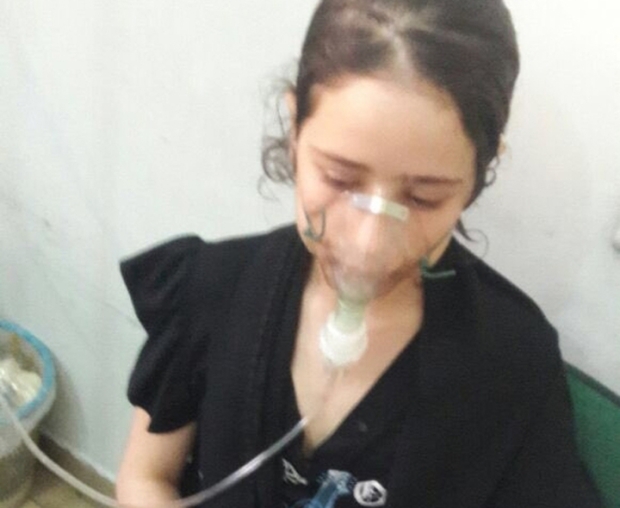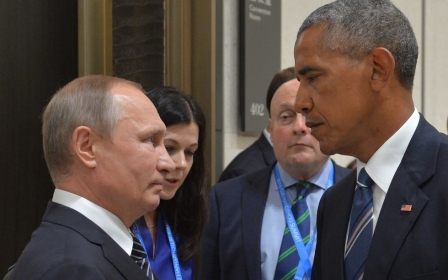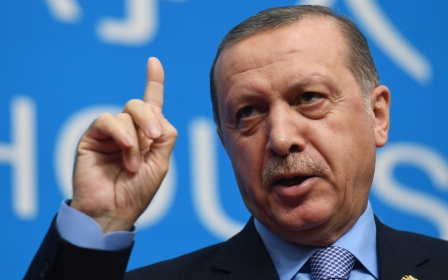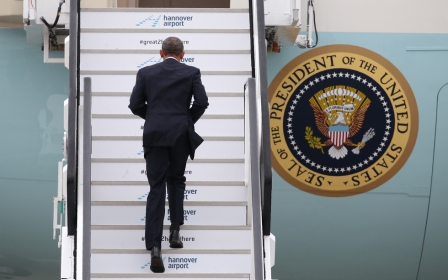Assad must cede power after six-month transitional phase: Opposition
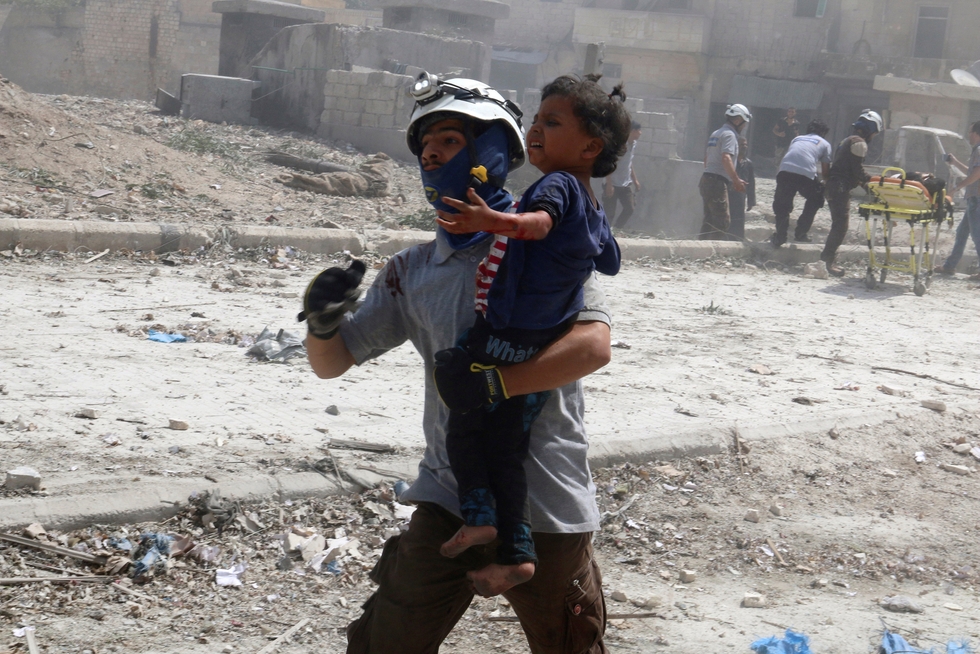
Syria's main opposition bloc restated its call for the removal of Bashar al-Assad and free elections in a "vision" for the future of Syria presented after a high-level meeting in London with foreign secretaries from around the world.
The High Negotiations Committee (HNC) on Wednesday launched a "comprehensive executive framework" for a political transition in Syria, following a meeting in London with British Foreign Secretary Boris Johnson and counterparts from the "Friends of Syria" group of countries opposed to the rule of the Syrian president.
Speaking following the meeting, however, HNC head Riyad Hijab warned that his group will reject any peace plan formulated by the US and Russia if it differs significantly from its own.
Hijab said the HNC's vision is of a three-stage transition, the first of which would include the return of millions of refugees and internally-displaced people, and the release of prisoners currently held in government jails.
The second would be an 18-month ceasefire managed by a transitional government with executive powers, not under Assad's leadership.
The third phase would see national elections overseen by the United Nations, with "civil and military" powers eventually handed over to the elected government.
The plan also stresses that administrative structures currently in place will be preserved in the transitional phase, and that a future military council "will be composed equally of the opposition and the regime.
"According to our vision, the aim of the transitional phase is to preserve the sovereignty and independence of the state - the starting-point is getting rid of Assad and his men," he told a press conference in London.
"All components of the Syrian people must participate in making the future of Syria," he said, stressing that the opposition's vision for the future "safeguards the rights of the Kurds".
The HNC had said on Tuesday night that its vision was "based on the Geneva Communique (2012) and relevant UN resolutions, which stress the departure of Bashar al-Assad and his clique," the HNC said in a statement on Tuesday.
"It calls for the establishment of a transitional governing body to protect the country's unity, safeguarding the state and its institutions, promoting the principles of democracy, freedom, equality and citizenship."
The HNC is an umbrella organisation formed at the end of 2015 to represent the moderate political and military groups that oppose the government of Syrian President Bashar al-Assad.
Membership includes Syrian groups ranging from Damascus-based oppositionists to moderate armed groups. Members, the HNC says, reflect the diversity and views of Syrian society.
The meeting comes as fighting in Syria continues unabated, with Turkey entering from the north, and the re-enforcement of the siege of Aleppo by forces loyal to Assad.
On Tuesday, residents in the rebel-held part of the city reported an alleged chlorine gas attack by Assad's forces, which caused sickness in up to 100 people.
Russia, one of Assad's main allies, has rejected any call for the removal of the Syrian president, arguing that his fall would lead to further chaos in the country and the rise of "terrorist" groups.
Avoiding mistakes of Saddam's removal
Johnson, the British foreign secretary, on Tuesday argued that it would be possible to remove Assad and avoid the turbulence which followed the 2003 ousting of Saddam Hussein in Iraq.
"Why should the same not happen again?... Assad is not a strongman but a frighteningly weak leader who can never again hold his country together - not after the slaughter he has engaged in," he wrote in The Times.
Johnson wrote that the proposals would not seek to sweep away state structures, saying this was a mistake committed following the US-led invasion of Iraq that would not be repeated.
"The entire international community is committed, at least in principle, to getting rid of the Syrian dictator. Even the Russians have accepted that there must be political transition," he wrote.
"But then the Russians are also employing their military muscle to prevent him from losing and to keep him in power."
Johnson accused Assad of "barbaric military tactics" in the ongoing conflict and criticised Russia's "seemingly indefensible conduct" of backing the Syrian leader.
In comments to the BBC, Saudi Foreign Minister al-Jubeir reiterated the call for the "mad man" Assad to step down, saying that there would be a "plan B" with "more stepped-up military activity" if he did not.
"We are not subscribed to the theory that Assad is making progress [in the war]," he said.
"There have been setbacks... I can't see how Assad who controls little of his country is in a position of victory."
Jubeir also said that the opposition was going further than before in outlining its vision for a post-Assad Syria.
"It should include everybody, it should be a democracy. That's the type of system that the Syrian opposition will be putting on the table.
"There is no reason, no excuse for anyone to say that they don't have a plan or that their plan is not rational," he added.
US-Russia talks stalled
The London meeting comes in the wake of a statement from the United States reporting progress with Russia on how to achieve a cessation of hostilities in Syria.
Reuters news agency on Tuesday said the United States had hoped to announce an agreement over the weekend to halt the fighting in the five-and-a-half year-old Syrian civil war, but Washington failed to strike an agreement with Russia.
The two powers support opposite sides in the conflict, with Moscow using its military to back Assad, and Washington taking the position that the Syrian president must go and supporting some opposition groups seeking to oust him.
"We continue to feel like we are making progress, and believe we are making progress, on some of the remaining issues, but we are not going to settle," US State Department spokesman Mark Toner said.
He said Secretary of State John Kerry and his Russian counterpart, Sergei Lavrov, were expected to meet "very soon" but did not have a time or place to announce.
The meeting will bring together France, the United States, Saudi Arabia, Qatar, the United Arab Emirates, Germany, Jordan, Italy and the European Union along with Turkey and the host country, Britain.
This article is available in French on Middle East Eye French edition.
New MEE newsletter: Jerusalem Dispatch
Sign up to get the latest insights and analysis on Israel-Palestine, alongside Turkey Unpacked and other MEE newsletters
Middle East Eye delivers independent and unrivalled coverage and analysis of the Middle East, North Africa and beyond. To learn more about republishing this content and the associated fees, please fill out this form. More about MEE can be found here.


